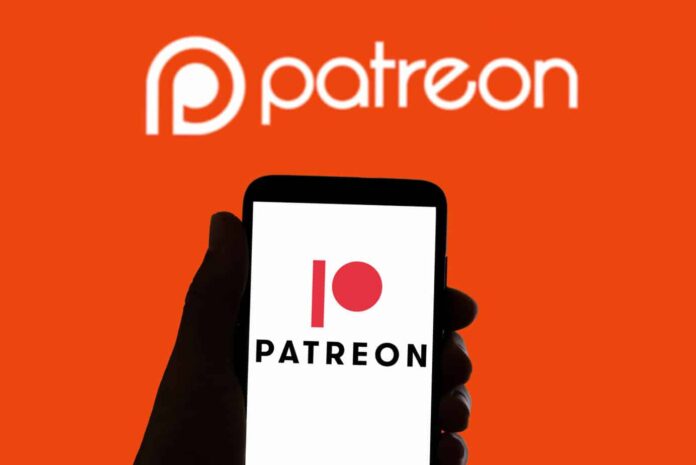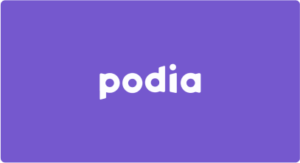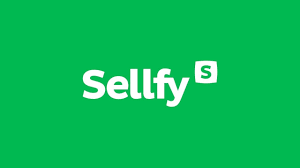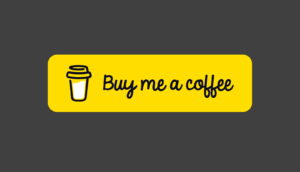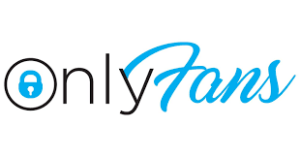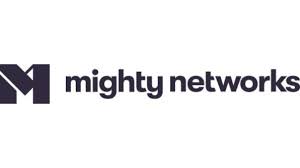Best Patreon Alternatives will be described in this article. Looking for the top membership and crowdfunding sites like Patreon? See our selection of the top Patreon alternatives. With the help of the wildly successful membership site Patreon, content producers can neatly solicit donations from their followers and subscribers in exchange for access to exclusive material.
8 Best Patreon Alternatives And Competitors For 2023
In this article, you can know about 8 Best Patreon Alternatives And Competitors For 2023 here are the details below,
However, problems with censorship and rising costs have prompted some consumers to search for alternatives. Thankfully, there are a ton of excellent choices available.
We’ll compare the top Patreon alternatives available right now in this post. We’ll go through their main characteristics, talk about how they’re different from Patreon, and more.
Ready? Let’s get going!
The best patreon alternatives – summary
The best Patreon substitute overall is Podia. Sell other digital things, build paid communities, and sell subscriptions. Fee-free paid plans. A restricted free plan is also offered.
Sellfy is a well-known e-commerce platform that makes it simple to sell subscriptions, tangible goods, print-on-demand goods, and other kinds of digital goods. Amazingly simple to use.
Buy Me A Coffee is a straightforward Patreon substitute that you may use right away. enables you to sell digital things and accept donations. Payouts instantly using Stripe. Free to use, 5% cost, and no features locked behind premium subscriptions.
1. Podia
Our top-choice alternative to Patreon is Podia. With Podia, you can design your own website, start paid communities, and sell subscriptions and other digital goods without paying any transaction costs, unlike Patreon.
Creating your community on someone else’s platform is one of the issues with using Patreon. This is detrimental to branding and indicates that you have little or no real ownership over your revenue stream. Of course, the transaction fees charged by Patreon also apply to you.
Because of this, Podia is a much superior substitute. On a website that you control, using Podia, you may create your community and sell memberships.
Similar to Patreon, Podia allows you to post gated material for members-only access and then charge subscribers who want to support you financially.
The main distinction is that your membership site will be completely customizable and under your total control. You can create as many free or premium plans as you like, each with its own set of reward tiers.
Additionally, you get to retain all of your profits because your community and membership platform are yours. Transaction fees are not a concern as long as you choose a premium plan.
Through the community function, you may have direct, multimodal conversations with your audience. Members may publish any type of comment, including text, photos, videos, etc.
On Podia, in addition to selling memberships, you can also offer other digital goods like online courses, downloads, and so forth.
Key Features
- Sell subscriptions and other digital goods.
- Make pay-to-play communities
- Create a personal creator website.
- Total command and control
- Combines Google Analytics integration
- With no transaction costs
Pricing
Without transaction costs, paid podia plans begin at $33 per month. A free plan with 8% transaction costs is also available.
2. Sellfy
A straightforward, user-friendly e-commerce platform designed for creators is Sellfy. It’s yet another fantastic option for creators that prefer to use their own website as opposed to a third-party platform to raise money and grow their network.
On Sellfy, you can create a lovely storefront in as little as 5 minutes, then adapt the design to your brand and link it to your own domain. This is another patreon alternatives.
Then, in exchange for weekly, monthly, or yearly payments, you can provide your fans access to premium material or other pleasures by creating digital subscription items.
On Sellfy, in addition to selling subscriptions, you may also sell a variety of other product kinds, such as physical and digital goods, streaming videos, and print-on-demand goods.
For artists, the print-on-demand tool is very helpful because it makes it simple to offer your own personalized branded merchandise to your audience. All you have to do is add the products to your store after uploading designs to items in Sellfy’s fulfillment catalog.
You are not required to buy any stock up front. Sellfy will print and deliver each order for the customer on your behalf, and only then will they bill you for the product base cost and fulfillment. Your profit margins are up to you.
Key Features
- Purchase subscriptions
- Print-on-demand production
- Sell a variety of goods
- Streaming videos
- Store designer
Pricing
Starting at $22 per month are paid services that enable you to sell unlimited products and subscriptions.
3. Buy Me A Coffee
The greatest alternative for creators seeking a straightforward platform for donation collection is Buy Me A Coffee. It’s really simple to use, and unlike Patreon, you can use it to take one-time payments from your audience as well as recurring monthly subscriptions.
The idea behind Buy Me a Coffee is quite straightforward. Simply establish a custom page on a subdomain (such as buymeacoffee.com/yourname), and your audience may visit it and donate money to you in exchange for your wonderful work in a few simple clicks.
When they donate, they can write a message that you can react to in order to express your gratitude. In contrast to Patreon, your fans can purchase coffee for you with just one click by selecting the number of coffees (or the amount to gift) and the amount to purchase.
Of course, you are also free to give something in exchange. Similar to Patreon, you may create membership options and give your supporters access to unique content. The ‘Extras’ function can also be used to market digital goods like ebooks, Discord access, Zoom calls with you, etc.
The majority of payment options, including credit and debit cards, PayPal, Apple Pay, Google Pay, and others, are accepted. Additionally, you are immediately paid for donations; there are no longer 30-day waiting periods! This is another patreon alternatives.
Use of Buy Me a Coffee is free, but a 5% platform charge is deducted from your donations; the remaining 95% are yours to keep. This costs less than PayPal’s Pro & Premium plans but is comparable to its Lite plan.
Fun fact: We raise money using the website Buy Me a Coffee. Our creator page is available here. Of course, your support is always appreciated if you enjoy the stuff we produce here at Blogging Wizard and would like to buy us a coffee.
Key Features
- One-time payments encouraged
- Sell digital goods and subscriptions.
- No account is necessary to donate.
- Very simple to begin
- Low transaction costs of 5%
Pricing
Although joining Buy Me a Coffee is free, a 5% platform charge will be deducted from your donations.
4. Ko-fi
Another crowdsourcing website like Buy Me A Coffee is Ko-fi. It might serve as a straightforward tip jar or a platform for memberships. They don’t charge a fee for donations or purchases, but they do for premium features that are provided at no cost to Buy Me A Coffee consumers.
Similar to Patreon, Ko-fi allows you to take membership fees and donations from your fans. In less than a minute, you can establish a free Ko-fi creator page. Set a crowdfunding objective after that, and ask your audience to support you in achieving it. Additionally, you can encourage people to donate by offering rewards like membership benefits and content that is exclusively available to supporters. This is another patreon alternatives.
It works well with WordPress, Zapier, and Discord, and you can even receive donation alerts while streaming.
The user interface reminds me a lot of Buy Me a Coffee. However, Ko-fi stands out because it is one of the few platforms that is actually free. On the free plan, there are no enrollment fees and no revenue-sharing agreements.
The drawback is that the free plan excludes premium options like subscriptions and the capacity to sell tangible goods and digital downloads through your website’s store.
Key Features
- Free users do not pay transaction costs.
- Memberships
- Selling goods
- Crowdfunding objectives
- Giving alerts
Pricing
Ko-fi is a free simple tip jar that you can utilize. However, you must upgrade to the Gold plan, starting at $6/month or 5% transaction charge, in order to access premium services. On average, gold users make 7.2 times more money.
5. Kickstarter
The most well-known crowdfunding website worldwide is likely Kickstarter. If you’re looking to fund one-time creative projects, it’s an excellent Patreon alternative, but it doesn’t offer memberships, making it unsuitable for collecting recurring donations.
Patreon and Kickstarter operate in slightly different ways. It is intended for artists who need to raise cash to pay for a one-time production.
You describe the project you’re seeking to fund, establish a funding target, and specify a deadline (such as within 60 days) when you launch your campaign.
If your initiative appeals to your audience, they can make financial commitments to support its realization. Once your project has successfully raised the required amount, your backers won’t be paid until then. However, your backers won’t be charged and you won’t get to keep any of their donations if you don’t meet your financing target within the allotted period. All or nothing applies.
Another way that Kickstarter differs from Patreon is that it carefully screens potential crowdfunders; therefore, anyone can join. However, if your campaign is approved and is a success, you may be able to raise a sizable number of money.
Platform fees on Kickstarter are 5%, which is comparable to the entry-level plan on Patreon but less expensive than higher-tier programs. This is another patreon alternatives.
Key Features
- Perfect for supporting occasional creative initiatives
- Massive user base
- Goals for funding
- Model of all-or-nothing
Pricing
Launching a campaign on Kickstarter is free, however 5% of the money you raise will be taken away, plus any processing fees associated with PayPal or Stripe.
6. Hypage
Hypage is a hybrid of a membership website and a link-in-bio tool. For social media influencers, particularly Instagram users, it’s a good substitute. Through your link-in-bio page, you may sell straight to your audience, set up recurring memberships, and create gated community content.
One link can only be promoted in the account description on Instagram by creators. Because of this, a lot of Instagram producers employ tools to construct landing pages for all of their affiliate and marketing connections. That is essentially what Hypage is. This is another patreon alternatives.
Hypage, in contrast to other link-in-bio programs, also enables you to accept donations and requests through your unique landing page. You may also use it to publish information that is only available to members through your page and sell recurring memberships and other things.
It’s a two-in-one solution that takes the role of both membership websites like Patreon and link-in-bio solutions like Linktree in a single tidy package.
The best thing, though? On premium plans, there are no transaction costs!
Key Features
Make a landing page for links in bios.
- Set up your own domain
- Take donations
- Offer exclusive material
- Sell digital goods and subscriptions.
Pricing
Start with a free plan to begin going. Plans start at $19/month and include premium features and no transaction fees.
7. OnlyFans
The ideal substitute for adult content makers is OnlyFans. Fans may support their favorite producers by subscribing to the social network, which also grants them access to unique material.
OnlyFans differs from Patreon in that it has more lenient content regulations that enable authors to market works that might not adhere to Patreon’s community standards. Adult-only material is included in this.
As a result, OnlyFans has gained a lot of popularity among producers of pornographic content, and the platform’s highest-paid users bring in millions of dollars each month.
Key Features
- serves as a social networking site.
- Creators and fans can communicate
- Policy with liberal content
- Ideal for those who make explicit content
- A huge user base with good discoverability
Pricing
OnlyFans offers free registration, but it retains 20% of the money you earn from subscriptions.
8. Mighty Networks
You may sell access to online communities as well as content like online courses and livestreams using the robust community platform Mighty Networks. This is another patreon alternatives.
With Mighty Network, you can create a paid community on your own platform with complete ownership and control, unlike Patreon. Some of the most popular YouTubers, including Drew Binsky, Adriene Mishler, and others, use it.
Additionally, Mighty Networks provides several cutting-edge community-focused features that are unavailable on other platforms. For instance, the cutting-edge Mighty EffectTM technology customizes the experiences of your members by filling their feeds with the most pertinent subjects, groups, users, items, etc.
Key Features
- Technology for customisation from Mighty Effect
- New member sections in Welcome & Discovery
- Members and moderators are unlimited on all plans.
- Total control over your neighborhood
- Built-in course creator
- Extensive member profiles
- Uploading native videos and livestreaming
- Comprehensive analytics
Pricing
Plans begin at $33 per month with no extra transaction costs. There is a risk-free trial period.
The Pros & Cons of Patreon
Let’s examine the reasons why Patreon might not be the ideal choice for every creator. Like all platforms, it has advantages and disadvantages. These are the primary ones you need to be aware of.
Pros
Easy monetization for creators. If you’re a well-known influencer or artist with a large following of devoted followers, Patreon offers a simple option to monetise your audience through fundraising initiatives.
No upfront costs. Because Patreon doesn’t have a monthly cost like some other sites, you can start your page for nothing. On the backend, Patreon deducts a portion of your monthly earnings.
Recurring revenue model. On a subscription basis, Patreon operates. Patrons agree to make recurring monthly payments, allowing you to stop depending on one-time gifts and instead have a steady monthly income.
Communication tools. With Patreon, you can create a closed community for your supporters and communicate with them directly. Additionally, you can grant them access to extra materials.
Flexible membership options and funding goals. With Patreon, you can create various membership tiers with various benefits based on the amount of money your supporters give.
Diverse creator base. Many other types of creators, such as YouTubers, streamers, musicians, podcasters, artists, and writers, can benefit from Patreon.
Connect to your WordPress site. Installing the WordPress plugin provided by Patreon will help you get the most out of your Patreon collection.
Cons
No Build-in marketing tools. On Patreon, it might be challenging to develop an audience or community if you don’t already have one that you can monetize. It doesn’t provide many marketing resources, and projects are hard to find.
Censorship. A few years ago, Patreon caused some controversy when it removed accounts it said violated its community guidelines, which forbid hate speech. Conservative pundits have accused the platform of political bias and saw these restrictions as an assault on free expression. Later, they prohibited an NGO account that was collecting funds for the Ukrainian army.
Uncapped fees. Instead than charging a set amount, Patreon takes a percentage of your earnings (either 5%, 8%, or 12% depending on the plan you choose). This implies that affluent earners may be required to pay monthly fees in the hundreds of dollars.
Subscriptions-only. One-time donations are not supported on Patreon, and having to commit to a recurring monthly subscription may discourage some potential donors.
Less control and ownership. You do not own the third-party platform Patreon. As a result, you won’t have the same level of authority or ownership as you would if you created your community on your own website.
Bad for branding. If you use Patreon, your audience will go there rather than to your own website bearing your brand to access your material.
Choosing the best patreon alternative
This finishes our list of the top Patreon substitutes. On this list, maybe you were able to find something appropriate for your target audience.
Here is a brief reminder of our top three suggestions in case you’re still unsure which platform to use (you can’t go wrong with any of them):
For the majority of creators, Podia is the greatest Patreon alternative overall. With subscription plans, you can utilize it to create your own paid community website where you can sell memberships and other digital material without incurring any fees.
Another strong e-commerce platform that you can utilize to build and market subscriptions is Sellfy. It has some capabilities that other platforms don’t have, such integrated print-on-demand fulfillment, and is designed especially for creators.
If you just need a simple way to collect donations, Buy Me a Coffee is the finest free alternative to Patreon. In just a few clicks, you can set up your own page and begin accepting donations and selling digital goods with Stripe payouts that are immediate.If you’re still undecided, try out one of their free trials or a tool’s free plan. We sincerely hope you enjoyed this article.

